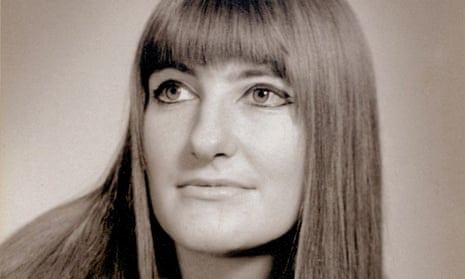Brenda Christie, who has died of cancer aged 70, was my wife, friend and comrade for more than 50 years. An intensely private person, though engaging, sociable and witty, she was a typist, editor, teacher and political activist; we met in London in 1968 on Bastille Day.
Brenda was born in Shoreditch, east London, daughter of Eliza (nee Evans) and Bert Earl, and grew up in Gosport, Hampshire, where her father was a chief petty officer in the navy. With a love of literature and a sharp intelligence, she had hoped to make a career in journalism, but the breakup of her parents’ marriage led her to leave home at 15 and move to London, where she became a copy typist.
In 1967 her adventurous spirit took her to Milan, where she worked as a companion to an American model, but the political and cultural turbulence of the time drew her back to London. Brenda was introduced to the International Socialists (which became the Socialist Workers party) through her best friend, Valerie Packham, and they were involved in the occupation of Hornsey College of Art in 1968.
She was also committed to the anti-Francoist cause, working with the anarchist First of May Group, which brought her to the attention of the Metropolitan police’s special branch and the intelligence services, as did her role as a co-founder, with me, of the anarchist publishing house Cienfuegos Press, and her association with the Anarchist Black Cross and Black Flag magazine.
When I was arrested and falsely charged with being involved in the Angry Brigade conspiracy in 1971, Brenda visited me almost daily in Brixton prison for 18 months, bringing home-cooked meals on public transport, and helped my legal team in my successful defence and acquittal.
In 1974, following the kidnapping in Paris of a Francoist banker by anti-fascists, a special branch officer visited our flat in Wimbledon and advised us to move out of London. We went first to Honley, in Yorkshire, where Brenda and a friend opened a teashop, Touchwood, which became popular with local millworkers and lorry drivers.
Our next home was Sanday in Orkney, where our daughter, Branwen, was born and where we continued our work on Cienfuegos Press. We then moved to Cambridge, and Brenda worked for Cambridge University Press on a number of titles with Albert Hourani and Trevor Mostyn including the Cambridge Encyclopedia of the Middle East and North Africa.
In Cambridge she discovered her true metier in education, initially teaching business studies at Cambridge college of further education. After a move to Hastings, East Sussex, where we settled for 20 years, Brenda’s teaching extended to giving drama lessons to Branwen – who later became an actor – and setting up the Rude Mechanicals Drama Studio.
Our final move to Clacton, Essex, coincided with a decline in her health, the pain of which was eased by the arrival of our granddaughters, Merri and Mo, who survive her, along with me and Branwen.
